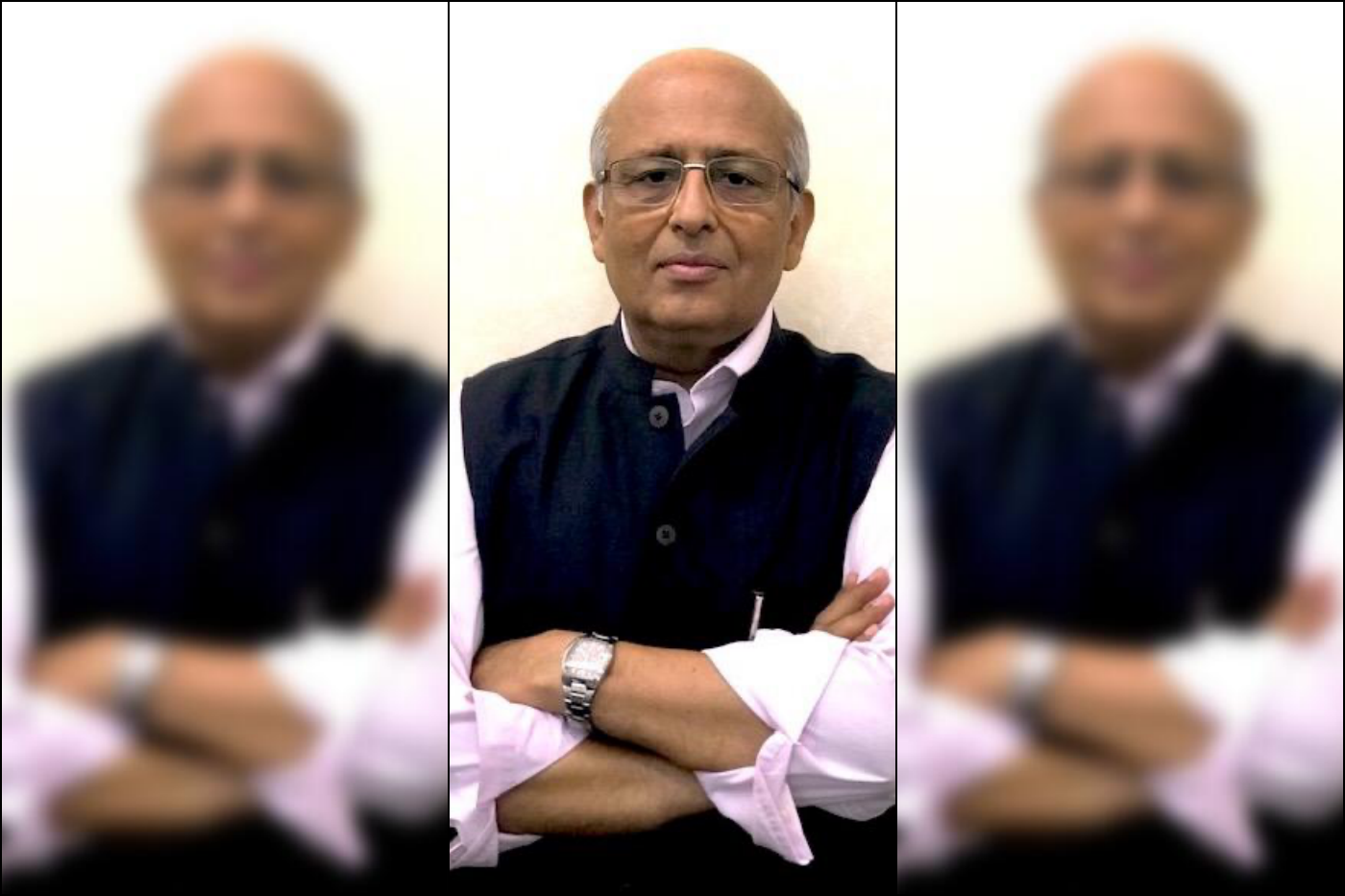
Shahid Jameel, April 2020. Photo: Ibrahimkhalil2004/Wikimedia Commons, CC BY-SA 4.0
Bengaluru: Virologist Shahid Jameel has resigned from his position as the chair of the Scientific Advisory Group of the consortium of labs the Indian government set up late last year to find out where which variants of SARS-CoV-2 are circulating in India and to what extent.
Jameel is currently director of the Trivedi School of Biosciences at Ashoka University, Sonepat, Haryana. He joined the consortium, called Indian SARS-CoV-2 Genome Sequencing Consortia (INSACOG), shortly after it was floated.
He has been an outspoken critic of how the Indian government has, and hasn’t, included data in its decision-making.
Four days before his resignation, Jameel wrote in the New York Times that India would have to increase testing and start isolating infected people to contain the country’s devastating second COVID-19 outbreak.
He finished his article thus (emphases added):
All of these measures have wide support among my fellow scientists in India. But they are facing stubborn resistance to evidence-based policymaking. On April 30, over 800 Indian scientists appealed to the prime minister, demanding access to the data that could help them further study, predict and curb this virus. Decision-making based on data is yet another casualty, as the pandemic in India has spun out of control. The human cost we are enduring will leave a permanent scar.
Jameel had said something similar earlier this month: “Policy has to be based on evidence and not the other way around. I am worried that science was not taken into account to drive policy. But I know where my jurisdiction stops. As scientists we provide the evidence, policymaking is the job of the government.”
When NDTV asked him why he quit, Jameel said, “It’s correct and I shall have nothing more to say.” When Reuters reached out to him for comment, he reportedly said, “I am not obliged to give a reason.” He didn’t share a reason with The Hindu either.
Reuters also reported that another (unnamed) INSACOG member hadn’t been aware of differences between Jameel and the government. No other seniour government officials, including Union health minister Harsh Vardhan and Department of Biotechnology secretary Renu Swarup, who oversees INSACOG’s operations, have commented on Jameel’s departure.
INSACOG’s relationship with the government became strained earlier this month after Reuters reported that the government had ignored a warning from INSACOG that a new variant of the virus could render India’s COVID-19 epidemic considerably worse.
Members of INSACOG reportedly told the government that it would have to impose “major restrictions”. However, the government went on to host large election rallies with tens of thousands of people ahead of the polls in West Bengal and Assam. The Centre also condoned Uttarakhand’s decision to host the Kumbh Mela festival, for which nearly 3 million people congregated in Haridwar to celebrate – with little to no safeguards against the novel coronavirus.
Also read: Kumbh Mela Shahi Snans Biggest Super-Spreaders in Pandemic’s History: Dr Ashish Jha
Rakesh Mishra, who was until recently the head of the Centre for Cellular and Molecular Biology, one of the INSACOG labs, told The Wire that “we were very very concerned something dreadful could happen.”
The variant at the top of people’s minds in India is called B.1.617, and which has been becoming the most common variant in circulation in the country. Jameel wrote in the New York Times:
In India the virus was mutating around the new year to become more infectious, more transmissible and better able to evade pre-existing immunity. Sequencing data now tells us that two variants that fueled the second wave are B.1.617, first found in India in December, which spread through mass events; and B.1.1.7, first identified in Britain, which arrived in India with international travelers starting in January.
After its launch, INSACOG was set back by lack of funds and the cooperation of various state-level and Central bodies vis-à-vis providing patient samples on time, an investigation by The Wire Science found.
As a result, Down To Earth reported, until late March, the labs had sequenced “only 7,664 samples – less than 1% of the total positive samples since January 2021 through March 18, 2021,” according to a “Union health ministry official who wished to remain unnamed”. According to The Hindu, INSACOG labs’ pace of work has increased since then.

